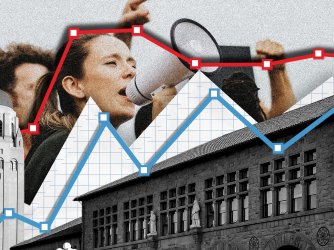Table of Contents
When University Lawyers Restrict Free Expression to Avoid Lawsuits
FIRE co-founder Harvey Silverglate's essay on "If I Ran the Zoo" is featured this week by the National Association of Scholars. The "zoo" series has invited comment—in poetry or prose—on what one would suggest about reforming higher education. A remarkable number of posts, like Harvey's, focus on ways of preserving individual rights on college campuses. Harvey writes on the problem that university lawyers all too often choose to restrict free expression for the sake of avoiding frivolous "harassment" lawsuits:
But rather than dissuade faculty and administrators from manipulating the term in such a way, the armies of lawyers who populate our campuses ... have encouraged the creation of "harassment codes" (né speech codes). Universities are urged – indeed, ordered – by their lawyers to bend over backwards in banning and punishing any speech that might offend someone and hence be deemed, even by the grossest stretch, to constitute "harassment."
Lawyers do this because of the school's bottom line (surprise, surprise). They believe that it is far more costly for the school, in terms of both money and reputation, to be sued by a student who feels that not enough was done to protect him or her from "harassment," than to be sued by a student who feels that his or her free speech rights were violated, and so they err on the side of more censorship, not more freedom. "Risk reduction" is the name of the game. The lawyer feels that he is doing his job if he can prevent a lawsuit, even if the means of prevention betrays the university's most fundamental mission – the pursuit of truth via the free marketplace of ideas.
I believe it is time for our colleges and universities to stop listening to their lawyers on issues of transcendent moral, educational, and pedagogical importance. When the lawyers say "don't take a chance with free speech, because it might constitute harassment, or in any event it might get you a lawsuit," the academy must simply ignore the advice and proceed to do its historic duty to protect the heart of the academic enterprise – the pursuit of truth and learning. If a few sensibilities and sensitivities get injured in the process, so be it. Over-sensitive individuals who choose to be involved in higher education will simply have to grin and bear it. Universities will have to instruct their lawyers to defend the academic enterprise, even in the face of threats of litigation. My prediction is that a principled defense of such speech would almost invariably prevail in court, since the law under the First Amendment, and the line drawn between free speech and true "harassment," is actually far more favorable to academic freedom than most university lawyers will admit.
I wish Brandeis's counsel had felt the same way about the administration's shameful actions against Professor Donald Hindley, who had a monitor placed in his classes by Provost Marty Krauss after Hindley critiqued the term "wetbacks" in a class. Krauss has repeatedly invoked some sort of "legal responsibilities" for taking this action but has never explained her rationale to Hindley or even to the Brandeis faculty's Committee on Faculty Rights and Responsibilities, which was privy to all the facts of the case. Now that the Brandeis faculty has revolted by—for one thing—suspending its support for the university's harassment policy, we see Harvey's points made all too real.
Recent Articles
FIRE’s award-winning Newsdesk covers the free speech news you need to stay informed.

A third of Stanford students say using violence to silence speech can be acceptable

Stanford president and provost cheer free expression in open letter to incoming class

FIRE survey shows Judge Duncan shoutdown had ‘chilling effect’ on Stanford students
